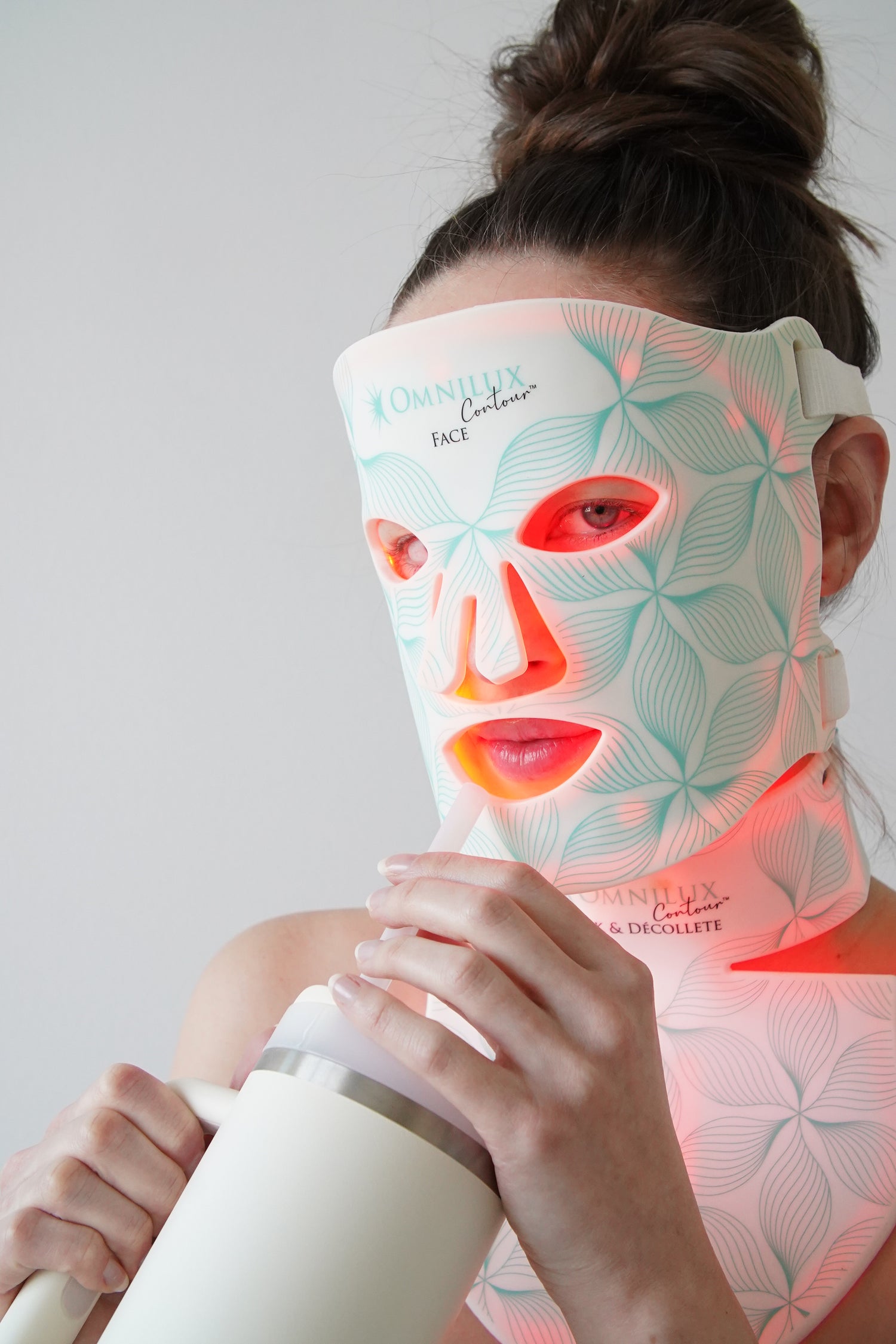Summer’s coming up, and keeping your skincare routine simple, effective, and chock full of SPF goodness is imperative during the warmer months when you’re outside, in the pool, and going makeup-free.
The harsh effects of the sun’s UVA and UVB rays include skin cancer and premature aging, so finding a good sunscreen you enjoy wearing daily is a must.
If you’ve found that sunscreen has always caused skin irritation or congestion for you, it may be because your skin is sensitive to chemical SPF ingredients. If this sounds like you, don’t stress because we’re here to help! Let’s dive in and talk sun protection.
Types of SPFs
The first important thing to know about SPF is that there are two different types of active sunscreen ingredients, and thus, two different types of sunscreens:
What is the difference between chemical and physical sunscreens?
Chemical Sunscreens are carbon-based, organic compounds that absorb UV radiation from the sun, preventing harsh rays from penetrating your skin. Chemical SPF active ingredients include:
- octinoxate (octyl methoxycinnamate)
- octisalate (octyl salicylate)
- oxybenzone (benzophenone)
- avobenzone
Physical Sunscreens, also called mineral sunscreens, are inorganic, or synthetically made, compounds that physically reflect UV radiation by creating a barrier on the skin. Mineral SPF ingredients include:
- titanium dioxide
- zinc oxide
Should I use a chemical or mineral SPF?
So, which type of SPF should you choose, and are you using the right one for your skin type?
We recommend mineral, or physical sunscreens over chemical sunscreens because they cause less skin irritation and come in translucent or tinted formulas.
If your SPF has been breaking you out, check the ingredient list for the chemical SPF actives listed above. If you find your sunscreen contains one, you may consider a physical SPF instead.
In addition to choosing a mineral sunscreen, it’s essential that you’re integrating your sun protection into a solid skincare routine. If you aren’t taking good care of your skin, your skin barrier will suffer, meaning harmful free radicals, UV rays, and pollutants will soak into your skin, and hydration and moisture will be compromised. No amount of SPF can fix that, so make sure that you’re committed to a twice-daily skincare routine including, at the bare minimum:
- cleansing
- exfoliating
- hydrating
So, let’s review. To keep your skin flawless while protecting it from UV rays this summer (and all year round!), keep these factors in mind:
- Choose a mineral (aka physical) sunscreen based on your preference, skin needs, and sensitivity level.
- If you’ve been experiencing breakouts or clogged pores, check your current SPF to see if it’s a chemical formulation with irritating ingredients. Try swapping to a physical SPF (see below for our favorites!) for clearer skin.
- Maintain a healthy skin barrier and reduce the likelihood of congestion by committing to a twice-daily skincare routine.
Best Tinted Sunscreen: ISDIN Eryfotona Ageless Tinted Mineral Sunscreen
Eryfotona Ageless is a light mineral SPF 50 that repairs existing sun damage, reduces fine lines and wrinkles, and is suitable for all skin types. Its versatile tint is appropriate for virtually all skin tones.
Best Sunscreen for Sensitive and/or Acne-Prone Skin: EltaMD UV Clear Broad-Spectrum SPF 46
This physical SPF calms and protects sensitive and acne-prone skin. Niacinamide, hyaluronic acid, and lactic acid promote optimal skin nourishment.
Best SPF for Sun-Damaged Skin: ISDIN Eryfotona Actinica
Eryfotona Actinica provides SPF 50 protection specifically for skin with photodamage. Armed with antioxidants, this sunscreen helps shield skin from UV rays while repairing existing sun damage.
Final Thoughts on Sunscreen for Healthy Skin
If you’ve been wary of sunscreen because it’s clogged your pores in the past, give one of these mineral sunscreens a try so you can keep your skin protected from harsh UV rays. Your skin will thank you in the long run as you enjoy a more rejuvenated, youthful-looking complexion with less photodamage!
Resources
American Academy of Dermatology Association. (2019). Sunscreen FAQs. Retrieved from https://www.aad.org/public/everyday-care/sun-protection/sunscreen-patients/sunscreen-faqs.
Lee, C., Lee, A. Y., & Yoon, H. S. (2020). The efficacy and safety of physical sunscreen ingredients for UV radiation protection. Journal of dermatological science, 98(1), 2-11.






